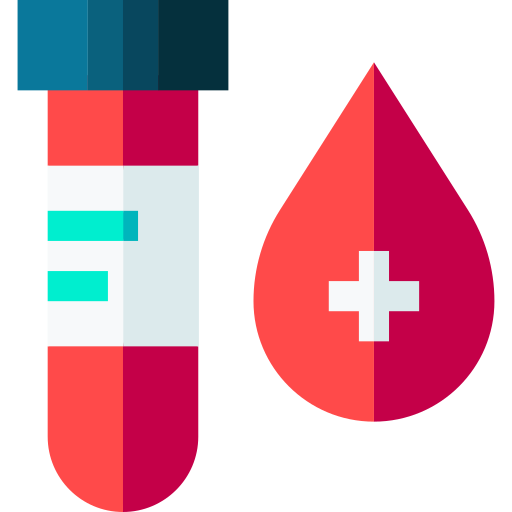Blood Tests
General, biochemical and other crucial examinations, for the prevention of diseases, the clinical diagnosis of health issues and the achievement of good health for everyone.

Description and necessity
General blood tests allow us to check the overall condition and function of our bodies such as oxygen circulation and defense reaction. During these tests, both the morphology and the quantity of our blood cells are closely examined, helping us deduce useful information about the condition of our bone marrow.
Some blood tests should be included in our annual preventive medical check-up. The types of preventive tests that we should take, depends on our age and gender. Patients with specific health problems or with a history of serious diseases in their family, should start conducting both general and specialized examinations earlier than others.
Preventive blood tests are extremely vital because they allow us to make an early diagnosis of issues that could possibly require further examination. In any case, it is the responsibility of the appointed physician to advise the patient about the examinations that they should perform.

What it includes
The most common tests are the following:

General Blood Test
- White Blood Cells
- Hematocrit
- Red Blood Cells
- Platelets
- Indicators of RBCs
- Leukocyte type
- Microscopic Blood Smear Examination
- Blood type and Rhesus
- Erythrocyte Sedimentation Rate (ESR)

Anemia Check
- Serum iron
- Total Iron Binding Capacity (TIBC)
- Siderophyllin (Transferrin)
- Ferritin
- Vitamin B12
- Folic Acid Levels
- Check for Hemoglobinopathy
- Hemoglobin electrophoresis (HbA, HbA2, HbS, HbF)
- Sickle Cell Test

Kidney Function and Urinary Tract Examination
- Urea
- Creatinine
- Sodium (Na)
- Potassium (K)
- Chlorine (Cl)

Thyroid Test
- Thyroid stimulating hormone: TSH, T3, T4, free T3, free T4, TG, Anti-TPO, Anti-TG Gout Test Uric Acid

Muscular Condition Test
- Creatine phosphokinase (CPK)

Prostate Check
- PSA, free PSA

Check for Bleeding Diathesis and Thrombophilia
- Hemostasis test
- Thrombocytopenia
- Coagulation factors

Diabetes Test
- Estimated Average Glucose (eAG)
- Glycosylated Hemoglobin
- Fasting Sugar Levels
- Glycosylated hemoglobin
- Sugar Curve
- Insulin
- Insulin Curve

Protein Test
- Total Protein
- Albumin
- Globulins

Lipid Test
- Total Cholesterol
- Triglycerides
- HDL cholesterol
- LDL cholesterol
- VLDL Cholesterol

Bone and Micronutrients Examination
- Calcium (Ca)
- Phosphorus (P)
- Magnesium (Mg)
- Alkaline Phosphatase (ALP)

Liver Function Test
- SGOT (Serum Glutamic-Oxaloacetic Transaminase)
- SGPT (Serum Glutamic Pyruvic Transaminase)
- γGT (Gamma-Glutamyl Transpeptidase)
- Bilirubin
- AMS (Amylase)
- Hepatitis Test (A, B, C)
Useful information about your blood test

Preparation
The correct preparation of the patient and ideal blood sampling conditions are both very important for the examinations to be carried out correctly and the results to be as accurate as possible.
A detailed medical history of the patient will provide very useful information to the microbiologist and will help him achieve greater precision in the lab results.
The patients should inform the microbiological center about their medical history, the reasons why their doctor suggested these tests and any medication that they might be taking.
Some blood tests require an empty stomach and so, no food should be consumed for about 12 hours prior to the examinations. Please consult your doctor for the necessary instructions.
Results
The results of our blood tests give us a clear image about the population, the shape and size as well as some further information about the morphology and quality of our cells. In other words, they provide us with the vast majority of the information we want to know from our diagnostic tests.
The blood tests are carried out inside a special machine called a Hematology Analyzer and the credibility of the results are ensured by the modern methods used, by the high level of scientific education of our center’s staff and also by the use of programs that perform internal and external quality control of the whole procedure.
The results are presented in a way that can be interpreted quickly and easily, always bearing the signature and approval of Mrs Voula Marinidou.


